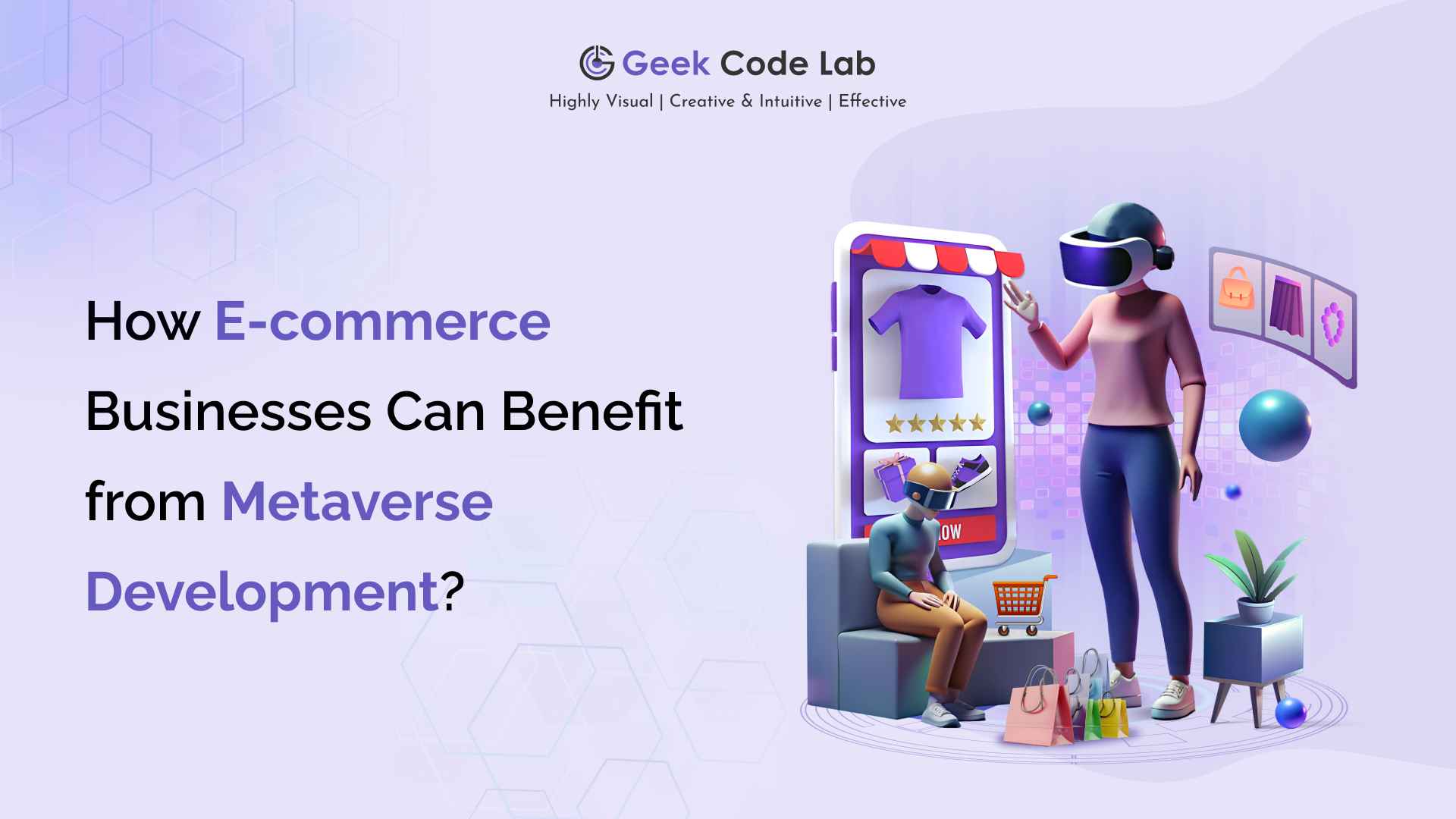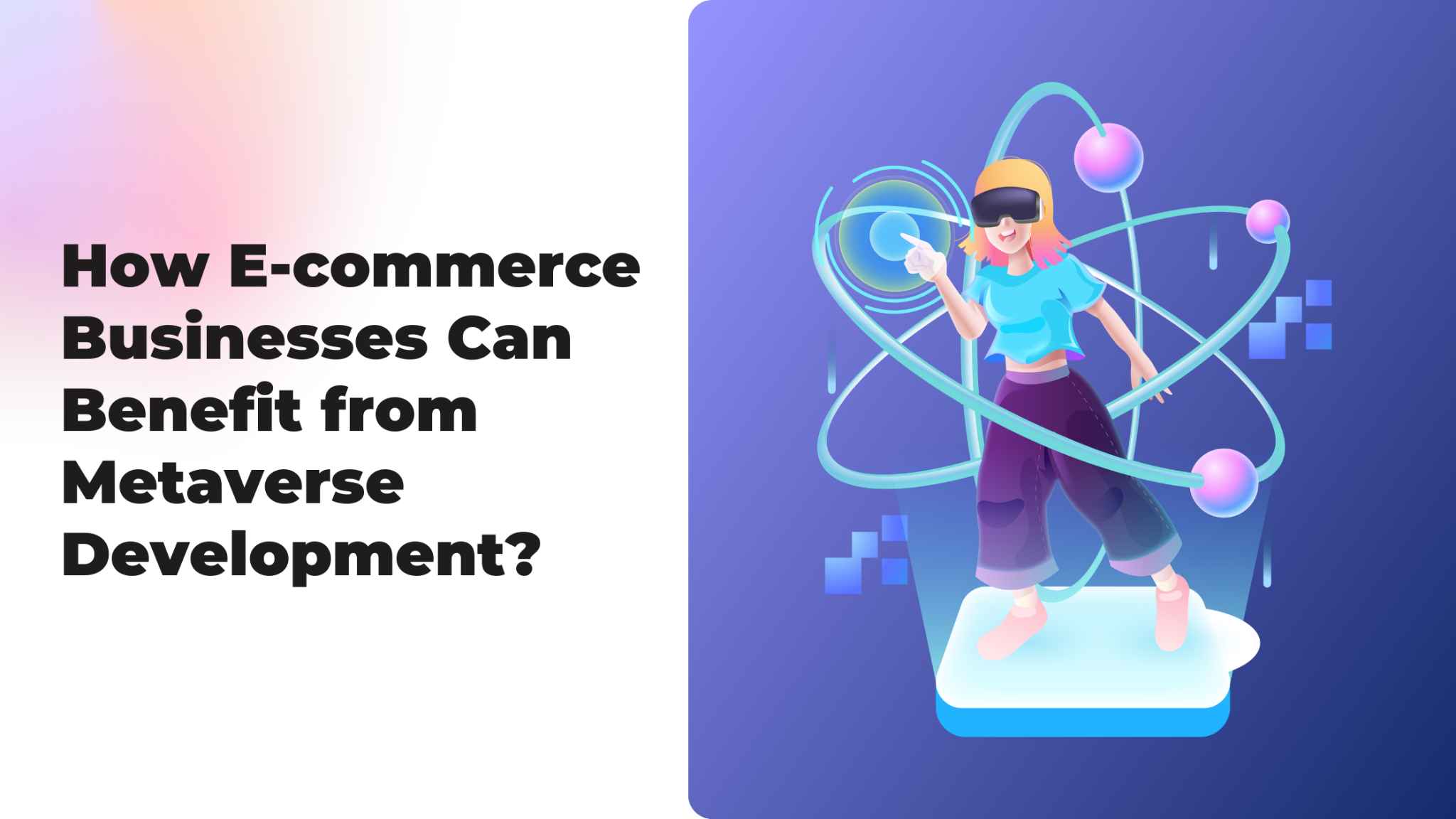Understanding Metaverse in eCommerce
Though we have only begun analyzing prospects, the metaverse development in e-commerce has already altered the sector. According to Forbes, industry kingpins like Warby Parker have incorporated augmented reality (AR) technology into their functions, facilitating buyers to try on frames before purchasing.
Visionary eCommerce companies have advanced the merging of virtual and real-world encounters. The two worlds seamlessly blend together to allow users to submerge themselves in virtual environments fully. This has been made possible by the application of innovative technologies and a focus on providing a seamless user experience. Users can now readily interact with digital tools in a natural environment and vice versa as a result.
Because the growth of eCommerce development in the metaverse has the potential to redefine eCommerce completely, retailers are introducing significant innovation for their customers.
This post will teach you everything about the metaverse in eCommerce. Furthermore, we will examine how the growth of metaverse ecommerce development solutions plays a crucial role in reinventing the brand experience virtually.
Metaverse in E-Commerce: Unleashing Transformation
The metaverse will eliminate most of the physical obstacles enterprises face. It extends technologies like social commerce, blockchain, and virtual and augmented reality. These technologies allow people to consort, play games, and purchase virtually without facing real-world barriers.
What Aspects of the Ecommerce Shopping Experience Is Metaverse Redefining?
With the recent explosion of eCommerce’s presence in the metaverse and vice versa, consumers can now preview goods and services before making an online purchase. Many eCommerce companies have started using metaverse development services to maintain client engagement. Additionally, this technology is successful in raising revenue and customer satisfaction.
Let’s examine the different prospects that the metaverse has brought to the eCommerce sector:
1. Immersive Internet buying environment
Consumers are any business’s main priority. Using the Metaverse eCommerce strategy, customers can engage with companies in real-time while purchasing on eCommerce websites. A digital metaverse eCommerce store removes physical constraints, guaranteeing customers a fully immersive buying experience. Customers’ opinions of physical stores will undoubtedly change if they spend more time in the Metaverse universe.
2. Simple exchanges
The use of metaverse in eCommerce has completely changed how people transact online. Another critical advantage for eCommerce companies operating in the metaverse is the ability to interact with digital currency without connecting a user’s cryptocurrency account to their traditional banking. Additionally, the transparency of metaverse development regarding online transactions allows users to verify purchases made in the virtual world.
Also read: Mastering eCommerce With WordPress: 6 Essential Plugins
3. Enhanced Customization
Tailored customer experiences are essential for reducing the percentage of abandoned carts. Consumers can explore the consumer avatar to personalize their virtual understanding and tailor their search. This enables them to test products that increase confidence and promote sensible decision-making. By implementing this flawless personalization strategy, eCommerce businesses operating within the metaverse have the potential to increase customer engagement and loyalty.
4. Enhanced Storytelling
Through storytelling, the Metaverse platform is an excellent tool for developing distinctive brand identities and increasing brand awareness. You can completely engross your audience and turn them from passive watchers or listeners into engaged participants who can actively participate in the tale as it is being told by utilizing innovative technologies like virtual reality, artificial intelligence, and more. Additionally, you may benefit from virtual events by using an ecommerce development company to arrange concerts in a virtual world that delivers a whole VR experience. In the Metaverse development, immersive storytelling and e-commerce integration open new avenues for audience interaction and brand loyalty.
5. Boost ROI
According to a Google poll, over 66% of online shoppers use augmented reality (AR) applications to help them make decisions. The methodology encourages customers to test the product in three dimensions, which increases customer satisfaction. Customers can communicate with online shop assistants and get additional notifications as eCommerce expands within the metaverse ecosystem. This will give them an engaging purchasing experience, increasing their return on investment.
6. Gamification Capabilities
The metaverse’s usage has advanced in the gaming industry and the eCommerce space. The play-to-earn concept, in which players gain prizes for game points, is the initial feature of metaverse games. Collaborating with fellow players in the fully immersive e-commerce setting is quite simple. To put these strategies into practice and enable users to keep interacting with the platform and completing purchases using the awards they have accumulated, Metaverse developers are actively working with eCommerce companies.
Important Metaverse Technologies to Enhance Your Business
The metaverse’s three main components are NFTs, blockchain, and extended reality. Let’s examine each separately to comprehend the framework in which each fits for redefining metaverse eCommerce.
Blockchain
Blockchain is a necessary component for eCommerce in the metaverse to operate. Security is one of the main barriers to online shopping, but blockchain technology provides a transparent, decentralized system that immediately allays security concerns. Finally, security issues can be removed entirely since the blockchain offers a stable and secure payment method.
Extended Reality
Another eCommerce metaverse development use case is extended reality, or XR, which describes immersive experiences like virtual (VR) and augmented reality (AR). The metaverse development, a whole new world of virtual experiences, would not be possible without XR. These technologies elevate their immersive qualities by putting virtual world experiences before us. For instance, whereas VR can produce a 3D surround sound experience, AR can offer 3D pictures. The metaverse would remain only a science fiction idea without XR. Industries that provide metaverse development services use XR technologies to construct and enhance virtual worlds, offering consumers a smooth and pleasing metaverse navigation venture.
NFTs
Renowned fashion, gaming, sports, and music brands use non-fungible tokens (NFTs) to demonstrate ownership of particular digital acquisitions. For example, Nike has connected a physical pair of trainers to their digital equivalent on its metaverse eCommerce platform. NFTs can be used for several purposes, such as pre-launching products, selling digital collectibles, building digital replicas, and improving consumer adherence via blockchain-based loyalty programs or fan tokens.
Conclusion
In the eCommerce ecosystem, the metaverse is a technology that may bridge the intermission between the physical and digital worlds and furnish an immersive user experience. As a result, eCommerce companies are aggressively employing the metaverse in their branding choices and equipping an exhaustive customer experience. As the metaverse extends, eCommerce development solutions are becoming increasingly paramount for enterprises looking to abide creatively and competitively in this fast-altering market.
Several well-known international industries have clasped metaverse technology and enjoy its benefits. These businesses use metaverse services to provide distinctive experiences, improve consumer interaction, and streamline transactions as part of their metaverse strategies.

